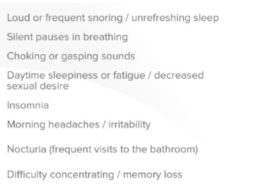
What is a CPAP?
When you have been diagnosed with moderate or severe sleep apnea you will be referred to purchase a CPAP. CPAP is an acronym for “Continuous Positive Airway Pressure”. The CPAP will not cure sleep apnea, but it does allow successful management of sleep apnea.
Pressurised air is blown through the nose and or mouth during sleep using a mask. It is recommended by the WHO (World Health Organization) that in order to receive full benefit you need to be using your CPAP for 80% of nights and approximately 5 hours a night.
There are a number of different types of PAP devices including CPAP, APAP and BiPAP. All have similar clinical outcomes but differences do relate to supporting the patient in keeping their airways open through use of air flow. There are various factors that vary between persons which determine the ideal machine for the patient. This should be discussed when purchasing your machine as well as when you undergo your titration and mask fitting.
You can choose any supplier of CPAP and masks and are not limited by where you undergo your titration and mask fittingA CPAP (or manual PAP) is set to a specific pressure between 4 and 20. This pressure is fixed and set and would not vary during the course of the night. Typically if you need a pressure (at90%) less than 11 then you should be able to manage on a Manual CPAP. There is a significant cost difference between manual and auto CPAP.
An Auto CPAP varies pressure between 4 and 20. It is an automatic process where the pressure needed by the patient to maintain the airways open +90% of time is sensed by the machine from each breath taken. The Auto CPAP adjusts the pressure continuously. This pressure can vary depending on nasal blockage, weight changes or surgery.
BiPAP machines, known as Bi Level, operate at pressures between 4 to 25 using different air pressures for inhale and exhale. BiPAP machines can support patients that struggle with a single fixed pressure level as well as patients that experience Central Sleep Apnea.
Patients who have sleep apnea and use CPAP/APAP and BiPAP report significant health benefits including increased energy, improved mood, longer sleep periods, reduced tiredness, lower blood pressure, reduced risk for heart attack and stroke. Overall patients being treated with CPAP have an improved health.
Some key problems experienced when using CPAP will be:Mask leaks: masks are the most important decision when purchasing a CPAP- possibly even more than the machine itself. You need to have a comfortable CPAP mask that meets your specific needs. The quality and type of masks varies significantly between suppliers. Masks that don’t fit, allows air to escape reducing the impact of CPAP therapy. The air escaping will disrupt your sleep and will create higher noise levels. You will need to tighten the mask. Some suppliers have automated mask fitting programs on their CPAP and also allow monitoring of mask leakage during the night.
Water in Hoses: heated humidifiers heat water stored in the humidifier tray. This water evaporates and travels up the pipe towards the mask. If your house is cold, including if you have air-conditioning the water may condense in the pipe before reaching the mask. Droplets will form in the pipe. To resolve this you can adjust the humidity level of the heated humidifier or purchase a heated pipe through your CPAP supplier.
Dry Mouths- make sure you have a CPAP humidifier, especially if you live at higher altitudes wher it can be drier.
To have high adherence in your use of CPAP you can discuss with various CPAP and CPAP mask suppliers. Choose a CPAP unit and CPAP mask that meets your needs and is comfortable.









Write a Comment